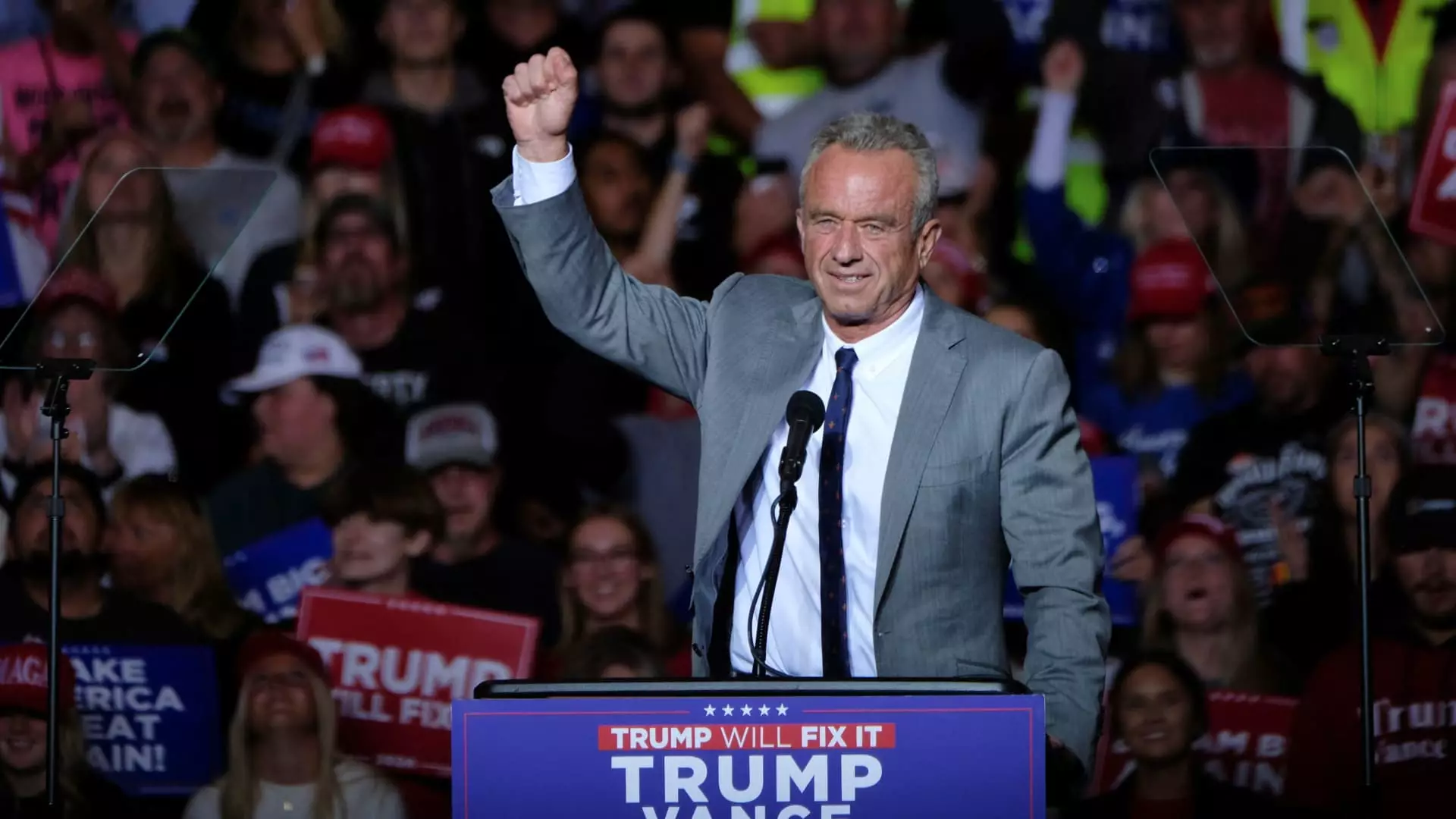In the world of dental care, the recent nomination of Robert F. Kennedy Jr. by President-elect Donald Trump to serve as the Secretary of Health and Human Services has sent ripples through the investment landscape. Investors are increasingly optimistic about potential changes in health policy that could impact the dental market significantly. Following the announcement, shares of dental supply company Henry Schein rose nearly 5%, marking one of its best trading days since July. This surge reflects the investors’ belief that the new administration may advocate for the removal of fluoride from public water systems, leading to increased demand for dental care services.
Kennedy, known for his controversial views on public health measures, suggested on social media that a Trump administration would recommend that all U.S. municipal water systems eliminate fluoride. This proposal has sparked both debate and opportunity, as fluoride has historically been recognized as an effective strategy to prevent dental cavities. However, the backlash against its use has been growing, with various communities across the nation choosing to remove fluoride from their water sources.
Market analysts, particularly from the firm Gordon Haskett, anticipate that if fluoride is indeed removed from public water supplies, it could lead to a significant uptick in dental visits as consumers seek alternative means to maintain oral health. Don Bilson, head of event-driven research at Gordon Haskett, pointed out that this shift would likely result in increased tooth decay, prompting a heightened reliance on dental hygiene products and services. He stated that Kennedy’s perspective on fluoridation will likely catalyze a demand surge for products and services geared toward cavity prevention.
Henry Schein isn’t alone in this bullish sentiment; other dental product manufacturers like Dentsply Sirona and Envista have also seen modest gains alongside Schein in recent trading sessions. The broader implications of these shifts suggest a burgeoning market for dental care services and products, which stands in stark contrast to other healthcare sectors that suffered following Kennedy’s nomination.
While dental care stocks find themselves buoyed by speculation around policy changes, the overall healthcare sector has exhibited volatility post-democratic nominations. The Health Care Select Sector SPDR Fund (XLV) reported a drop of approximately 3.5% in November, marking a concerning trend that could culminate in its first three-month losing streak since the previous year. By comparison, the S&P 500 index gained more than 3% in the same period, highlighting the unique positioning of dental stocks.
Moreover, the ramifications of Kennedy’s appointment extend beyond the dental space. Concerns over his skepticism regarding vaccinations have cast a shadow over pharmaceutical stocks, which have faced selling pressure. The apprehensions surrounding processed food regulations have pushed packaged goods prices down as the financial community braces for potential scrutiny of ‘junk food’ marketing practices. According to Bilson, the reverberations of Kennedy’s nomination have been felt broadly across various health-centric equities, leading to a notable pullback in diverse sectors.
Despite the current optimism surrounding dental stocks, experts caution that actual regulatory changes regarding fluoride may take years to materialize. The notion that drinking water regulations would fall primarily under the jurisdiction of the Environmental Protection Agency, rather than the Department of Health and Human Services, could further complicate the timeline for any form of policy implementation.
Investors and stakeholders in the dental care industry should exercise caution, remaining aware of the broader regulatory environment while also recognizing potential short-term gains. The interplay of political change with market dynamics underscores a complex landscape where dental care’s future remains uncertain yet ripe with opportunities for growth.
As the transition to a new administration unfolds, the shifting paradigms in health policy could redefine the dental care market, making it imperative for stakeholders to remain agile and informed in this evolving context. The dental industry, while facing a potentially turbulent regulatory future, may find itself at the forefront of a new era shaped by changing consumer preferences and political will.

